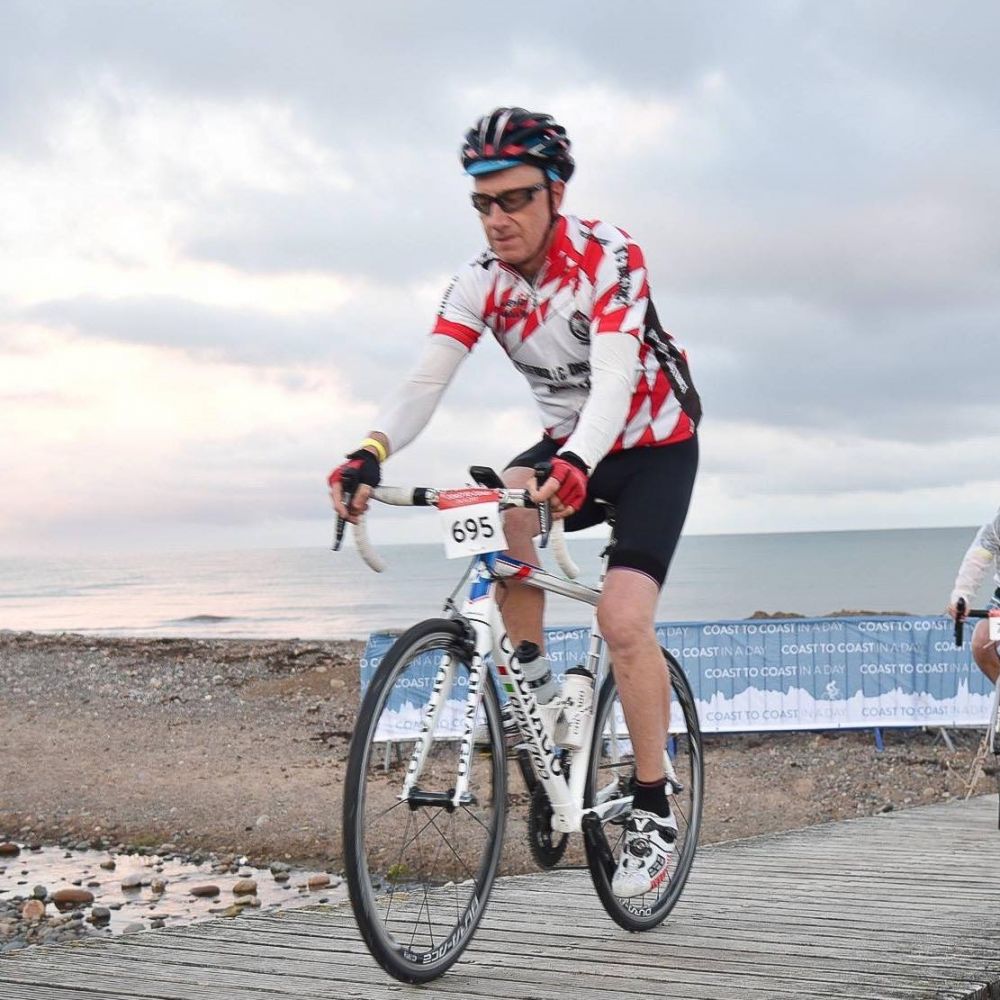News
Friday 17th May 2024When Can I Claim Compensation For A Cycling Accident?
 You may be able to make a cycling accident claim if you were injured in an accident caused by someone else's negligence. Additionally, you may have a claim if your accident was caused by defective equipment or poor road conditions.
You may be able to make a cycling accident claim if you were injured in an accident caused by someone else's negligence. Additionally, you may have a claim if your accident was caused by defective equipment or poor road conditions.
The Department of Transport's Reported Road Casualties in Great Britain 'Pedal Cycle Factsheet' published in 2023, found that the biggest contributory factor allocated to vehicles involved in fatal or serious collisions with pedal cycles was the driver failing to look properly. As a result of this, you may be able to claim compensation if you’ve been involved in a cycling accident caused by another road user. The most common cause of bicycle accidents involves a motor vehicle, such as a car or lorry failing to leave sufficient room between themselves and your bike, turning across a cyclist’s path, emerging from a junction, or changing lanes on a roundabout.
Furthermore, there does not have to be contact between a cyclist and a motor vehicle for you to be able to claim. We have successfully represented many cyclists who have had to take evasive action to avoid a collision. We have also recovered compensation for incidents where a person in a parked motor vehicle has opened their door into the path of a cyclist without looking.
You may also be able to claim compensation if faulty equipment contributed to your cycling accident. This could include safety issues with your bike or if your helmet was faulty due to faults or standards in manufacturing.
For those of us living here in East Devon, it is also important to note that 56% of pedal cycle fatalities occurred on rural roads and perhaps not surprisingly, 82% of pedal cyclists killed or seriously injured were male.
The Highway Code has a long list of rules that cyclists must adhere to but there is no obligatory test for cyclists. Inevitably some cyclists will not have read the Highway Code sufficiently or even at all.
 In 2022, the Government introduced three new rules to the Highway Code including Rule H3 (This rule is for motorbike users and drivers, and gives priority to cyclists and horses when cars are turning: 'You should not cut across cyclists, horse riders or horse drawn vehicles going ahead when you are turning into or out of a junction or changing direction or lane) which gives pedal cyclists priority over motorists when they are turning in or out of a junction. Cyclists should also occupy the centre of any single lane they are in. The problem gets even more complicated in cities with rented electric bikes, often hired by occasional or novice riders who are battling with their own cycling abilities and a strange bike, alongside the requirements of the Highway Code.
In 2022, the Government introduced three new rules to the Highway Code including Rule H3 (This rule is for motorbike users and drivers, and gives priority to cyclists and horses when cars are turning: 'You should not cut across cyclists, horse riders or horse drawn vehicles going ahead when you are turning into or out of a junction or changing direction or lane) which gives pedal cyclists priority over motorists when they are turning in or out of a junction. Cyclists should also occupy the centre of any single lane they are in. The problem gets even more complicated in cities with rented electric bikes, often hired by occasional or novice riders who are battling with their own cycling abilities and a strange bike, alongside the requirements of the Highway Code.
East Devon’s biggest conurbation Exeter, is not yet in the situation of London where pavements are often littered with discarded rented bikes. But this might not be for much longer. The Government’s carbon net zero initiative by 2050 encourages people to travel in the most sustainable way. Organisations like charity Sustrans, campaigns for fair funding for active travel, whether it’s walking or cycling. So biking is an easy win on every level – except when it comes to safety.
‘Given the current cost of living crisis, riding a bike to work or for social travel makes an awful lot of sense,’ says Roger Henderson of Rundlewalker’s Accident & Injury Team. 'But it has to be said that the statistics are frightening. We encourage all cyclists to undertake a safety course, wear proper protective and high viz clothing, get insurance and be prepared for any incident.’
Rundlewalker’s Roger Henderson puts it all into context. ‘Quite simply, if you’re a cyclist involved a collision, whether or not it was your fault, the key is to act swiftly and get good sound legal advice. Gather whatever evidence you can, whether it’s photographic, factual or witnessed. Speed is of the essence here.’
If you’ve been involved in an accident involving a cycle, a horse or a vehicle, the implications can be very serious, physically, emotionally, and financially. You need to act swiftly and get the right legal advice. The highly experienced Accident and Injuries Team at Rundlewalker is available to you. Simply contact us now to discuss your legal situation and we can advise you of the options available. Please call Roger Henderson on 01392 209218 or email roger.henderson@rundlewalker.com.
Roger has worked closely with many road safety professionals and stakeholders, so he very much supports all road users taking extra care and being respectful to each other whilst on the roads of Devon and Cornwall.
 Vision Zero’s ambition is to cut road deaths and serious injuries to zero by 2040 – and to reduce current numbers by 50% by 2030.
Vision Zero’s ambition is to cut road deaths and serious injuries to zero by 2040 – and to reduce current numbers by 50% by 2030.
In 2022, 47 people were killed and 741 seriously injured on Devon and Cornwall's roads. That number MUST come down. While the region is one of the safest when it comes to road safety, we believe that any death or serious injury is too many.
.png) This article is for general information only and does not constitute legal or professional advice.
This article is for general information only and does not constitute legal or professional advice.
Please note that the law may have changed since this article was published.

